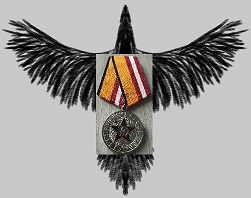RussiAnVetEraN
Senior Member
    Offline
Offline

Stunned
Posts: 373
Zelenograd
Gender: 
|
"My sixth point is that we keep emphasising that sovereign equality is an imperative for any lasting international framework. Of course, countries differ in terms of their potential. This is an obvious fact. The same applies to the capabilities and opportunities they have. In this context, we often hear that achieving total equality would be impossible, amounting to wishful thinking, a utopia.
However, what makes today’s world special is its interconnected and holistic nature. In fact, sometimes countries that may not be as powerful or large as others play an even greater role compared to great powers by being more rational and results-driven in using their human, intellectual capital, natural resources and environment-related capabilities, by being more flexible and smart when tackling challenging matters, by setting higher living and ethical standards, as well as in administration and management, while also empowering all their people to fulfil their potential and creating a favourable psychological environment. This approach can bring about scientific breakthroughs, promote entrepreneurial activity, art and creativity, and empower young people. Taken together, all of this counts in terms of global influence and appeal. Let me paraphrase a law of physics: you can outperform others without getting ahead of them.
The most harmful and destructive attitude that we see in the modern world is supreme arrogance, which translates into a desire to condescendingly lecture others, endlessly and obsessively. Russia has never done this. This is not who or what we are. We can see that our approach is productive. Historical experience irrefutably shows that inequality – in society, in government or in the international arena – always has harmful consequences.
I would like to add something that I may not have mentioned often before. Over several centuries, the Western-centric world has embraced certain clichés and stereotypes concerning the global hierarchy. There is supposedly a developed world, progressive society and some universal civilisation that everyone should strive to join – while at the other end, there are backward, uncivilised nations, barbarians. Their job is to listen unquestioningly to what they are told from the outside, and to act on the instructions issued by those who are allegedly superior to them in this civilisational hierarchy.
It is clear that this concept works for a crude colonial approach, for the exploitation of the global majority. The problem is that this essentially racist ideology has taken root in the minds of many, creating a serious mental obstacle to general harmonious growth.
The modern world tolerates neither arrogance nor wanton disregard for others being different. To build normal relationships, above all, one needs to listen to the other party and try to understand their logic and cultural background, rather than expecting them to think and act the way you think they should based on your beliefs about them. Otherwise, communication turns into an exchange of clichés and flinging labels, and politics devolves into a conversation of the deaf.
The truth is that we see how they engage with other cultures that are different. On the surface, they show genuine interest in local music and folklore, seeming to praise and enjoy them, but beneath this facade, their economic and security policies remain neo-colonial.
Look at how the World Trade Organisation operates – it does not solve anything because all Western countries, the main economies, are blocking everything. They always act in their own interests, constantly replicating the same models they used decades and centuries ago – to continue to control everyone and everything.
It should be remembered that everyone is equal, meaning that everyone is entitled to have their own vision, which is no better or worse than others – it is just different, and everyone needs to sincerely respect that. Acknowledging this can pave the way for mutual understanding of interests, mutual respect and empathy, that is, the ability to show compassion, to relate to others’ problems, and the ability to consider differing opinions or arguments. This requires not only listening, but also altering behaviour and policies accordingly.
Listening and considering does not mean accepting or agreeing, not at all. This simply means recognising the other party’s right to their own worldview. In fact, this is the first necessary step towards harmonising different mindsets. Difference and diversity must be viewed as wealth and opportunities, not as reasons for conflict. This, too, reflects the dialectics of history.
We all understand here that an era or radical change and transformation invariably brings upheavals and shocks, which is quite unfortunate. Interests clash as if various actors have to adjust to one another once again. The world’s interconnected nature does not always help mitigate these differences. Of course, this is quite true. On the contrary, it can make things worse, sometimes even injecting more confusion into their relations and making it much harder to find a way out.
Over the many centuries of its history, humanity has grown accustomed to viewing the use of force as the last resort for resolving differences: “Might makes right.” Yes, sometimes this principle does work. Indeed, sometimes countries have no other choice than to stand for their interests with arms in hand and using all available means.
.."
|

 Forum
Forum

 Home
Home 

 Album
Album 

 Help
Help

 Search
Search

 Recent
Recent 

 Rules
Rules 

 Login
Login

 Register
Register





 Pages: 1
Pages: 1 

